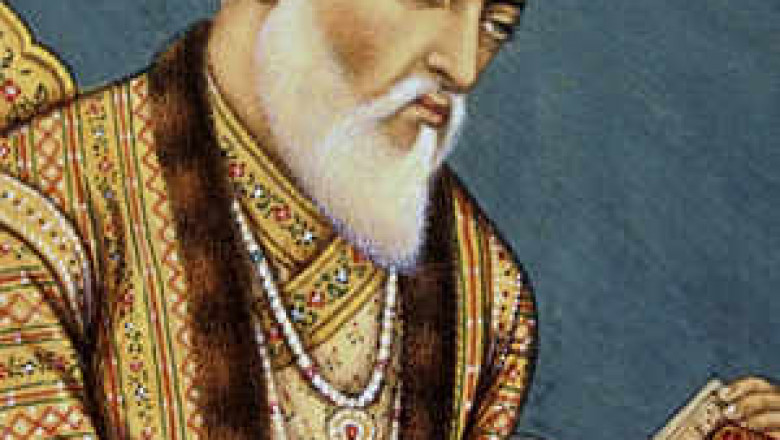views
Early Life and Ascension to the Throne
Aurangzeb was born on November 3, 1618, in Dahod (now in Madhya Pradesh, India). He was the third son of Emperor Shah Jahan and Empress Mumtaz Mahal, the same queen for whom the Taj Mahal was built. Aurangzeb had several siblings, including Dara Shikoh, the eldest son, who was seen as the heir apparent.
From an early age, Aurangzeb was trained in military strategy, administration, and the study of Islamic law and religion. He was deeply religious and pious, which set him apart from some of his more secular and liberal siblings. When Shah Jahan fell ill in the 1650s, a fierce struggle for the throne broke out among his sons. Aurangzeb, backed by the military, defeated his brothers, including Dara Shikoh, who was executed. After Dara’s defeat, Aurangzeb took the throne and became emperor in 1658.
Reign of Aurangzeb
Aurangzeb’s reign is often seen as a turning point in Mughal history. His rule saw the expansion of the empire to its largest territorial extent, but it also involved significant changes in governance and policy.
Expansion of the Empire
Aurangzeb expanded the Mughal Empire to its greatest territorial limits. His military campaigns were focused on the Deccan Plateau, where he waged prolonged wars against the Marathas, the kingdoms of Bijapur, and Golconda. By the end of his reign, much of southern India came under Mughal control.
Religious and Social Policies
Aurangzeb is often remembered for his orthodox Islamic policies. Unlike his father, Shah Jahan, and his grandfather, Akbar, who promoted religious tolerance, Aurangzeb reversed some of the more liberal policies of the Mughal Empire. He reimposed the jizya tax on non-Muslims (which had been abolished by Akbar) and destroyed several Hindu temples, most notably the Keshava Deva Temple in Mathura.
Aurangzeb also took a conservative stance on governance, seeking to enforce Sharia law more strictly and curtail the influence of non-Muslim practices within his empire. His strict religiousness and attempts to make the empire more Islamic created resentment among his non-Muslim subjects, especially the Hindus.
Maratha Conflict
Aurangzeb’s long and costly war with the Marathas was one of the defining aspects of his reign. The Maratha Empire, under leaders like Shivaji and later his son Sambhaji, posed a serious challenge to Mughal supremacy in the Deccan. While Aurangzeb succeeded in defeating Shivaji in several key battles, he was never able to fully subjugate the Marathas, who continued to resist Mughal rule.
The Maratha leader Shivaji’s resistance to Aurangzeb's rule is particularly notable, and it became a significant part of the larger history of the decline of the Mughal Empire.
Decline in the Later Years
In his later years, Aurangzeb became increasingly isolated from the complexities of governance, relying heavily on his administrators and military commanders to manage the vast empire. His campaigns in the Deccan drained the empire’s resources, and the administration became overextended.
The persistence of rebellions, especially by the Marathas, Rajputs, and Sikhs, further weakened the empire's hold over its territories. Aurangzeb’s policies alienated many Hindu rulers, and his intolerance towards non-Muslims created internal dissent.
Death and Legacy
Aurangzeb died on March 3, 1707, at the age of 88, after a long and exhausting reign. His death marked the beginning of a slow decline for the Mughal Empire. While the empire was still vast, the internal tensions and economic strain caused by constant warfare, religious intolerance, and administrative challenges led to its eventual fragmentation in the 18th century.
Aurangzeb is a highly controversial figure in Indian history. To some, he is seen as a strict, orthodox ruler who helped preserve the empire's integrity, while to others, his policies of religious intolerance and relentless military campaigns contributed to the empire’s collapse and the rise of regional powers.
Overall, Aurangzeb’s reign was a complex and contradictory one. His military successes were overshadowed by his harsh domestic policies and the empire’s increasing vulnerability to external threats in the centuries after his death.
















![[1 (888) 326-1024] How to Get in Touch with Expedia 24/7 Support Team: Phone, Email, and Chat Options](https://timessquarereporter.com/upload/media/posts/2025-06/01/1-888-326-1024-how-to-get-in-touch-with-expedia-24-7-support-team-phone-email-and-chat-options_1748757002-s.jpg)





Comments
0 comment